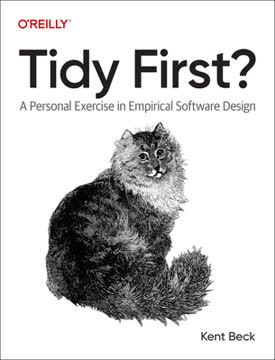つの重要なポイント
1. 根本的な尊重:強制ではなく協力を最適化する
「協力はあらゆる偉大な人間の業績に不可欠である。」
チームワークを促進する。 根本的な尊重とは、人々が効果的に協力し合う環境を作ることであり、力を使って従わせることではない。このアプローチは、特に現代の経済において、より良い結果とイノベーションをもたらす。
強制を防ぐ。 リーダーは、偏った意思決定、いじめ、ハラスメントなど、協力を妨げる行動を積極的に防ぐ必要がある。これには、権力に対するチェックとバランスを備えた管理システムを設計し、リーダーがその行動と結果に対して責任を持つことが含まれる。
従業員を力づける。 従業員を欠けている存在として扱うのではなく、彼らの本来の能力を認識し、最善の努力を引き出すシステムを作ることが重要である。これには、従業員に声を与え、意見を求め、率直に話すことを奨励することが含まれる。
2. 一律の適合を求めるのではなく個性を尊重する
「俳優以外の誰も、自分ではない誰かを装って最高の仕事をすることはできない。」
多様性を受け入れる。 成功する協力には、多様な視点と経験が必要である。チームが互いのアイデアに挑戦することで、互いの仕事を向上させる。これが、職場でのフィードバックが個人と集団の成長と成功に不可欠である理由である。
均質性を避ける。 多くの場合、組織は「文化に合う」人材を求めるが、「文化を追加する」人材を求めることは少ない。これにより、従業員が適合を強いられ、組織が進化するのが難しくなる。このアプローチは、重要な貢献をする可能性のある人々を排除する。
本物の自分を奨励する。 人々が職場で本当の自分でいることを快適に感じる環境を作る。これは、他人への言葉の影響を無視することではなく、自分自身に忠実でありながらコミュニケーションスタイルを調整することを意味する。
3. 偏見、先入観、いじめを理解し対処する
「問題を解決するためには、それに気づくことが必要である。」
違いを認識する:
- 偏見:無意識、「意図していない」
- 先入観:意識的な信念、「意図している」
- いじめ:意図的に有害な行動、「意地悪」
適切に対処する:
- 偏見に対して:「私」ステートメントを使用して視点の共有を促す
- 先入観に対して:「それ」ステートメントを使用して明確な境界を設定する
- いじめに対して:「あなた」ステートメントを使用して行動を直接対処する
ダイナミクスを理解する。 これらの問題がどのようにエスカレートするかに注意する:
- 偏見 + 権力 = 差別
- いじめ + 権力 = ハラスメント
- 権力(地位的または物理的) = 物理的な違反の条件
4. リーダー:公平性と説明責任のためのシステムを設計する
「管理システムを公正に設計しなければ、システム的な不公正が生じ、結果を達成する能力が損なわれる。」
設計原則を適用する:
- チェックとバランス:個々の権力を制限し、協力的な意思決定プロセスを作る
- 重要なことを測定する:管理プロセスにおける偏見を積極的に定量化し対処する
重点を置くべき主要な領域:
- 報酬:原則に基づいたシステムを設計し、人口統計別に給与データを分析する
- パフォーマンス管理:360度評価、キャリブレーションプロセス、昇進委員会を使用する
- 採用:個々のマネージャーではなく採用委員会に依存する
- 退職:解雇決定の偏見を分析し、徹底的な退職面談を行う
説明責任を確立する。 CEOを含む誰もが、監視なしに他人を採用、解雇、昇進、または報酬を決定する権限を持たないようにする。
5. アップスタンダー:職場の不公正を阻止するために介入する
「あなたの沈黙はあなたを守らない。」 - オードリー・ロード
自分の役割を認識する。 アップスタンダーは根本的な尊重の文化に不可欠である。彼らは偏見、先入観、いじめのターゲットが孤立しないようにし、加害者に明確なフィードバックを提供する。
介入の5つのDを使用する:
- 直接:加害者に挑戦する
- 気をそらす:状況を和らげるために気をそらす
- 委任する:介入するのに適した立場の人に助けを求める
- 遅延する:後で被害者に確認する
- 記録する:必要に応じて証拠を提供するために何が起こったかを記録する
連帯を築く。 介入することで、アップスタンダーは他の人々も同じように行動することを奨励し、職場を全員にとってより良い場所にする。
6. 被害者:戦略的に対応を選択する
「望むすべての対応を取ることはできないかもしれない。しかし、どのように、または対応するかどうかを選択する権利はある。」
選択肢を評価する:
- 事件を記録する
- 同僚と連帯を築く
- 最寄りの出口を見つける
- 加害者と直接話す(リスクがある場合)
- 人事部に報告する(リスクがある場合)
- 法的措置を取る(リスクがある場合)
- 公に話す(リスクがある場合)
ROIを計算する。 声を上げることの利点と欠点を考慮し、欠点を直感的に感じることを認識する。自己肯定、偏見の内面化を防ぐ、他の人のために状況を改善するなどの利点を意識する。
主体性を維持する。 対応しないことを選ぶことは、沈黙させられることとは異なる。状況と個人的な状況を評価し、積極的な選択を行う。
7. 加害者:認識し、償いをする
「自分が何を間違っているのかを知らなければ、正しいことはできない。」
AAAAACプロセスに従う:
- 認識する(自己教育)
- 公に間違いを認める
- 結果を受け入れる
- 償いをする
- 謝罪する
- 良い方向に変わる
防御心を管理する。 自分の行動が偏っていたり有害であったりしたと指摘されたときに防御的になるのは自然なことだが、偏見を認識しないままでいることは、それを認めるよりもリスクが高い。
意図ではなく影響に焦点を当てる。 他人に「善意を前提にしてほしい」と主張するのではなく、自分の態度や行動が実際にどのような害をもたらしたかを見つける。
8. 身体的な違反を防ぐために同意の文化を作る
「誰かに触れたい場合、たとえ握手するだけでも、その人が触れられることに同意しているかどうかを知る責任がある。」
明確なガイドラインを設定する:
- 相手が触れられたくない場合は、触れない
- 確信が持てない場合は、触れない
- 酔っていて判断がつかない場合は、触れない
- 酔って自制できない場合は、特に職場では飲まない
さまざまな種類の接触に対処する:
- 望まない接触
- 同僚間の同意のある接触
- 権力関係の乱用
- 暴力
職場でのアルコールを管理する。 アルコールを一切許可しないことを検討するか、消費を制限し、アルコール関連の事件を防ぐための厳格なポリシーを実施する。
9. キャリアを壊さずに権力に真実を語る
「恐怖は声を上げることのコストに焦点を当てることから生じる。勇気は沈黙を守ることのコストに焦点を当てることから生じる。」 - アシュリー・ジャッド
声を上げるための戦略:
- 事件を徹底的に記録する
- 同僚と連帯を築く
- 問題に直面する前に出口オプションを見つける
- さまざまなアプローチ(直接の会話、人事部への報告、法的措置、公の開示)のリスクと利益を考慮する
自分の権利を知る。 職場の問題を報告する労働者を保護する法律を理解する。選択肢を理解するために労働弁護士に相談することを検討する。
サポートネットワークを構築する。 メンター、同盟者、専門組織を探し、困難な状況を乗り越えるためのガイダンスとサポートを提供してもらう。
10. 公平な実践を確保するために重要なことを測定する
「測定するものが得られる。」
人口統計別にデータを分析する:
- 報酬:異なるグループ間の賃金格差を探す
- 昇進:過少代表グループの昇進率を追跡する
- パフォーマンスレビュー:フィードバックにおける偏見を特定するために言語分析を行う
- 採用:採用プロセスの各段階で潜在的な偏見を検討する
明確な目標を設定する。 多様性と包括性の指標を改善するための目標を設定するが、逆差別を引き起こす可能性のあるクオータシステムは避ける。
透明性を確保する。 従業員と公平性の取り組みの進捗を共有し、信頼と説明責任を築く。
技術を賢く使う。 拡張ライティングソフトウェアなどのツールを活用し、求人情報、パフォーマンスレビュー、その他のコミュニケーションにおける潜在的な偏見のある言語を特定する。
最終更新日:
FAQ
What's Just Work about?
- Focus on Inclusivity: Just Work by Kim Malone Scott tackles bias, prejudice, and bullying in the workplace, aiming to foster a culture of inclusivity.
- Framework for Change: It offers a framework to help individuals recognize and address these issues, providing practical solutions for leaders and upstanders.
- Radical Respect Concept: The book introduces "Radical Respect," which focuses on collaboration and honoring individuality over coercion and conformity.
Why should I read Just Work?
- Addressing Real Issues: The book deals with pervasive workplace problems, making it relevant for anyone seeking to improve their work environment.
- Practical Guidance: It provides actionable advice and frameworks that can be immediately applied to create a more respectful and inclusive culture.
- Personal Growth: Reading it can help you understand your own biases and navigate complex social dynamics in professional settings.
What are the key takeaways of Just Work?
- Recognize Different Problems: Distinguishing between bias, prejudice, and bullying is crucial, as each requires a different response.
- Role of Upstanders: Upstanders play a critical role in fostering a culture of respect by intervening when witnessing harmful behavior.
- Designing Management Systems: Leaders should design systems that minimize bias and promote fairness, allowing all employees to contribute their best work.
What is "Radical Respect" in Just Work?
- Definition of Radical Respect: It is a regard for others' feelings, rights, and traditions, owed to everyone without needing to be earned.
- Optimizing Collaboration: The concept emphasizes collaboration over coercion, allowing individuals to express their true selves without fear.
- Honoring Individuality: It stresses the importance of honoring diversity within teams, enhancing creativity and innovation.
How does Kim Malone Scott define bias, prejudice, and bullying in Just Work?
- Bias: Defined as "not meaning it," often unconscious and stemming from stereotypes not consciously endorsed.
- Prejudice: Described as "meaning it," reflecting a conscious belief that rationalizes flawed assumptions.
- Bullying: Characterized as "being mean," with the intent to harm or dominate others, often without underlying belief.
What are the recommended responses to bias in Just Work?
- Use "I" Statements: Respond to bias with "I" statements to invite the other person to consider your perspective without attacking their character.
- Encourage Reflection: This approach encourages reflection and learning, helping the person recognize the impact of their actions.
- Foster Open Dialogue: "I" statements create a space for open dialogue, leading to better understanding and improved relationships.
How can leaders prevent bias, prejudice, and bullying according to Just Work?
- Create a Culture of Respect: Leaders must actively work to ensure all team members feel safe to express themselves.
- Implement Checks and Balances: Management systems should include checks to prevent power abuse and hold leaders accountable.
- Encourage Upstanding Behavior: Leaders should promote upstanding behavior, making it clear that intervening against bias and bullying is expected.
What is the "toxonomy" mentioned in Just Work?
- Definition of Toxonomy: A framework to identify and differentiate between bias, prejudice, bullying, discrimination, harassment, and physical violations.
- Purpose of Toxonomy: It helps address each problem with the appropriate response and solution.
- Facilitating Understanding: Aids in understanding workplace dynamics and building solidarity among those experiencing related issues.
What are some effective strategies for upstanders in Just Work?
- Direct Intervention: Use "you" statements to hold the person causing harm accountable.
- Create Distractions: If direct confrontation is risky, create distractions to diffuse the situation.
- Support the Harmed: Check in with the person harmed, offering support and solidarity to help them feel less isolated.
What’s Radical Respect about?
- Focus on Workplace Justice: Addresses bias, prejudice, bullying, discrimination, harassment, and physical violations in the workplace.
- Framework for Action: Provides a framework for leaders and employees to recognize and combat these issues effectively.
- Personal Experiences: Shares the author's experiences, illustrating real-world implications of workplace injustices.
How does Radical Respect define institutional courage?
- Definition: Commitment of leaders to seek truth and act on behalf of those harmed by misconduct.
- Importance of Accountability: Leaders hold themselves accountable, fostering trust and encouraging reporting of misconduct.
- Proactive Prevention: Emphasizes creating a culture prioritizing safety and respect, not just responding to incidents.
What are the best quotes from Just Work and what do they mean?
- "Your silence will not protect you." Emphasizes the importance of speaking up against injustice.
- "We can fix problems only when we are willing to notice them." Highlights the necessity of awareness in addressing workplace issues.
- "When they go low, we go high." Encourages responding to negativity with integrity and respect.
レビュー
キム・スコットの『Radical Respect』は賛否両論の評価を受けており、平均評価は5点中3.85点である。多くの読者は、スコットの正直さ、脆さ、そして公正な職場を作るための実践的なアドバイスを高く評価している。本書は、偏見、差別、ハラスメントなどのトピックを取り上げ、さまざまな役割に対する戦略を提供している。一部の読者は本書を洞察に富み有益だと感じる一方で、その特権的な視点や整理されていない構造を批判する声もある。スコットの前作『Radical Candor』に親しんでいる読者は、本書との比較に関してさまざまな意見を持っている。総じて、本書はリーダーや職場の公正に関心のある人々にとって貴重なリソースと見なされている。
Similar Books















